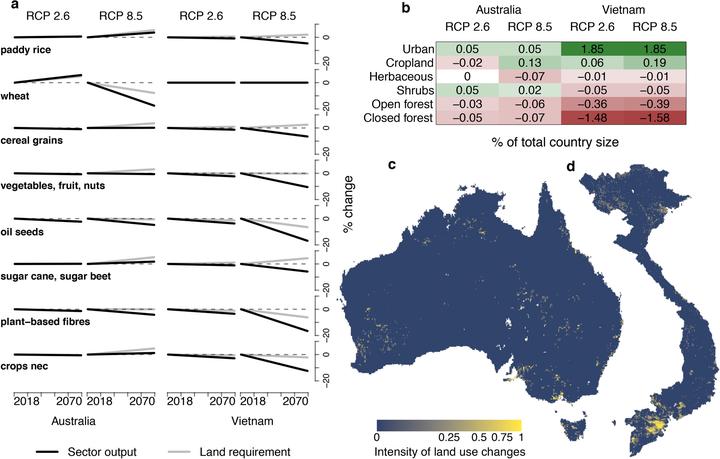Bio-economic modelling and business/biodiversity trade-offs
 Kapitza, S., et al., (2021).
Kapitza, S., et al., (2021).Improving outcomes for biodiversity is going to require input and coordination from all parts of society - including governments, civil society, and the business and finance sectors. We address fundamental questions about the combined impacts of consumption, climate change and land use change on biodiversity to inform mitigation and adaptation measures for climate change and biodiversity loss. To do so we link economic, land-use and species distribution models to predict local-level response of species to global scale environmental and socio-economic (e.g. population growth, consumption patterns) drivers of change. We also investigate the growing interest from the business and financial sectors in understanding and mitigating the risks posed to businesses by biodiversity loss. In this research we work to identify pathways to incorporate and adapt conservation tools into financial decision making to help predict and improve outcomes for biodiversity under different scenarios.
Researchers:
Payal Bal, Matthew Cantele, Natasha Cadenhead, Simon Kapitza, Brendan Wintle, Tom Kompas, Skip Woolley
Affiliate researchers:
Pia Lentini
Selected publications:
Cantele, M., Bal, P., Kompas, T., Hadjikakou, M., and Wintle, B.A., 2021. Equilibrium modeling for environmental science: Exploring the nexus of economic systems and environmental change. Earth’s Future, 9, e2020EF001923.
Kapitza, S., Van Ha, P., Kompas, T., Golding, N., Cadenhead, N.C., Bal, P. and Wintle, B.A., 2021. Assessing biophysical and socio-economic impacts of climate change on regional avian biodiversity. Scientific reports, 11(1), pp.1-10.